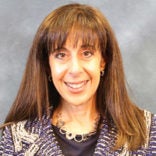Donald Trump’s recent appointment of Larry Kudlow as his next chief economic adviser made me feel sad. I do not say this with any negative feelings toward his competency for this position or his political views. Rather, I feel a profound sense of sadness that his love for “tradition” and “ritual” caused him to convert to Roman Catholicism rather than explore the richness of the Jewish tradition into which he was born.
An article in JTA revealed that Kudlow’s attraction to tradition, formality, and rules drew him to Catholicism. Also, “not much stuck” from his Jewish roots in New Jersey, despite becoming a bar mitzvah. According to this source, he had not been to a synagogue for years.
Although Kudlow’s conversion apparently took place in the last decade of the 20th century, the idea that Judaism has little to offer non-Orthodox Jews seems to be increasingly popular in the 21st century. Those who regularly read the sociological studies of the American Jewish community know that pride is strong but religious practice continues to ebb among the majority of Jews. Studies show that among the non-Orthodox, the rate of intermarriage continues to escalate, and even those who do marry Jews are having fewer children. According to sociologist Steven M. Cohen, “in just one generation, non-Orthodox American Jewry has cut the in-marriage rate nearly in half.” And despite the calls for greater inclusivity among the Reform, and more recently the Conservative, movements, statistics do not lie. The reality is that intermarried Jews display far lower levels of engagement with Judaism than in-married couples.
Commentators continually call for more attention to Jewish education and better ways of communicating Jewish content. Clearly, a lack of Jewish knowledge is problematic, but as Larry Kudlow’s path illustrates, the problem is not just with formal education. Most Jews have lost an even more fundamental experiential connection with Jewish tradition. This lapse becomes especially apparent when one compares the situation of non-Orthodox Jews in the United States with those in Israel.
I recently taught a course on Jewish law and the American Jewish movements at Radzyner Law School in Herzliya. When I first looked at the class roster, I experienced something completely unique in my 30-plus years of teaching law. Virtually every name on my class list was Jewish. Although I knew that this would be the case, seeing these names in print gave me an instant emotional connection to all of my students.
My class of 50 students was largely secular, although secular in Israeli terms is a very different phenomenon than here. It became palpably clear that the vast majority of my students had very strong emotional ties to Jewish tradition, even if they were not practicing the religion in the sense of adhering to Jewish law, halacha. In truth, this did not surprise me given that they live in a world that is, inevitably, steeped in Jewish history, culture and practice.
At my home law school, which is Catholic, sometimes I am fortunate enough to be able to teach a course on women and Jewish law. Few of my students are Jewish. Often, though, the course attracts religious students of other religions, especially Catholics. We cover material that is completely foreign to virtually all of my American students but the one thing they walk away with from it is a feeling of how beautiful Jewish tradition and ritual can be.
I would like to ask Larry Kudlow whether his Jewish education taught him that Judaism has plenty of rules for those who are so oriented. I would ask him whether he ever learned that halachah covers not only ritual but virtually every aspect of human behavior including business, ethics, war, sex, down to the order in which one puts on and ties shoes.
I would also ask him whether, as a lover of tradition and ritual, he would have been attracted to Catholicism had he experienced a weekly Shabbat dinner where the children were blessed and songs were sung together before the meal. If as a child he knew the beauty of having one night a week where the entire family was together, even for just the time of the meal itself, would he have been tempted to turn to his own religion rather than elsewhere when as an adult he wanted and needed more ritual?
American Jews have largely forgotten how to experience the beauty of Jewish ritual. In a world that has become far too black and white, especially in recent decades, most Jews see religious tradition as an all-or-nothing proposition. The truth, though, is that Jewish tradition — defined as the laws, customs, practices and experiences that are particular to Judaism — are often experienced and treasured in shades of gray.
We need to reclaim the unique content of Jewish tradition. For most Jews, this does not mean following the details of Jewish law in the same way as the Orthodox. But reclaiming Jewish tradition does mean understanding that Jewish tradition is largely particularistic and experiential. We must teach our children and grandchildren to taste its richness and offer them a consistent way to tap into its beauty.
Roberta Rosenthal Kwall is the Raymond P. Niro Professor at DePaul University College of Law. She is the author of “The Myth of the Cultural Jew: Culture and Law in Jewish Tradition” (Oxford University Press, 2015) and is currently working on a book about transmitting Jewish tradition in a diverse world.
The New York Jewish Week brings you the stories behind the headlines, keeping you connected to Jewish life in New York. Help sustain the reporting you trust by donating today.





